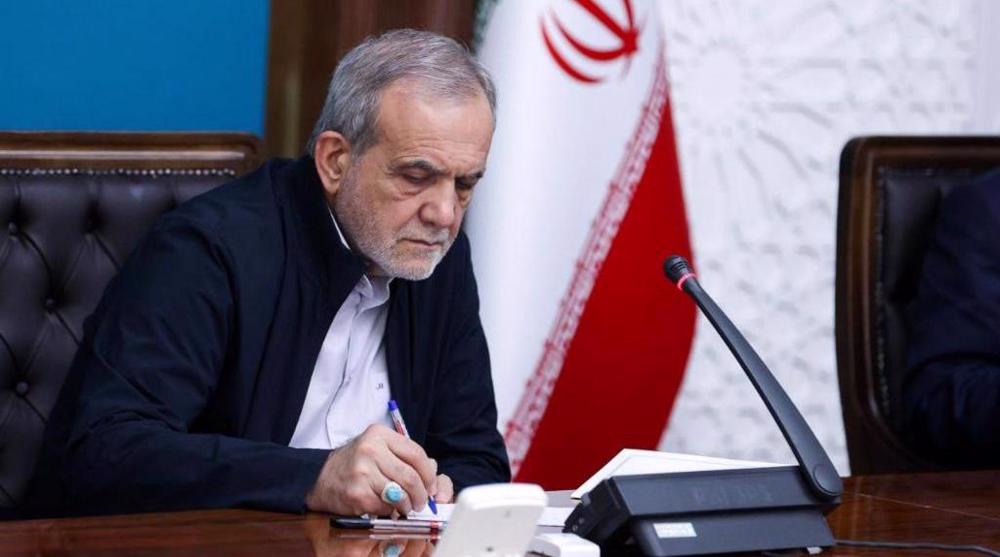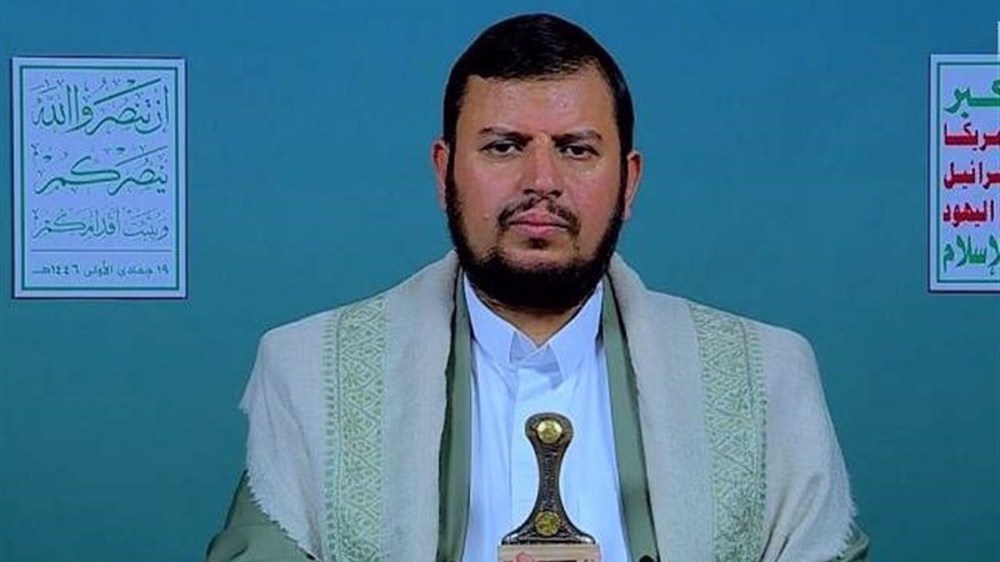Iran urges Bahrain to release opposition leader Salman
Iran has once again called on Manama to release Bahraini opposition leader Sheikh Ali Salman, who has been behind bars since late last year.
Iranian Deputy Foreign Minister for Arab and African Affairs Hossein Amir-Abdollahian said on Thursday that, with the continued detention of Salman, Manama has given the initiative to hardliners, who are further complicating the situation in Bahrain day by day.
Amir-Abdollahian added that national dialog should replace "the systematic violation of human rights" to maintain security and stability in Bahrain.
He stressed that the Islamic Republic backs negotiations between the Bahraini authorities and the opposition.
Salman, who is the secretary general of the al-Wefaq National Islamic Society, was arrested on December 28, 2014 on charges of seeking regime change and collaborating with foreign powers. He has strongly denied the charges.

A Bahraini protester holds a placard portraying Sheikh Ali Salman, the head of the opposition movement al-Wefaq National Islamic Society, during a demonstration against his arrest in the city of Jidhafs, west of the capital, Manama, February 25, 2015.
His arrest has triggered condemnation inside and outside Bahrain, with leaders, governments and international organizations across the world calling for his immediate release.
Since mid-February 2011, thousands of anti-regime protesters have held numerous demonstrations on the streets of Bahrain, calling for the Al Khalifa family to relinquish power.
The Manama regime’s crackdown on peaceful protests has intensified since the arrest of Sheikh Salman.
Scores of Bahrainis have been killed and hundreds of others injured and arrested in the ongoing crackdown on peaceful demonstrations.
On Wednesday, Amnesty International released a statement, calling on the Al Khalifa regime to free 13 activists whom the rights group described as “prisoners of conscience.”
Amnesty censured the “lack of adequate medical treatment” and deterioration in the inmates’ health “as a result of inadequate treatment for injuries resulting from torture.”
It further called on the regime “to ensure that all prisoners have access to adequate and timely health care by independent doctors.
DB/HJL/MHB
‘Confused clowns’: Iran FM blasts Zelensky over call for aggression on Iran
Trump drops Canada from Gaza board after PM Carney’s critique of US
Iranian students rally to condemn Germany's backing for rioters
Enemies of Ummah seek to expand war, Pezeshkian tells Erdogan
VIDEO | Press TV's news headlines
VIDEO | New wave of Israeli strikes on Lebanon as US suspends ceasefire mechanism
VIDEO | Israeli regime kills three more Palestinian journalists
Canada prime minister hits back at Trump's remarks










 This makes it easy to access the Press TV website
This makes it easy to access the Press TV website